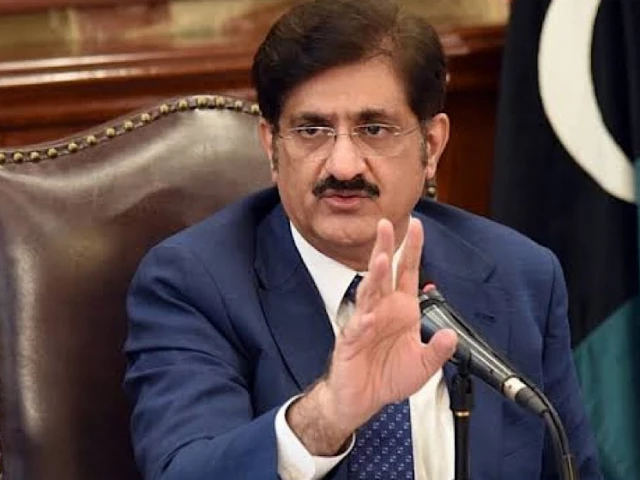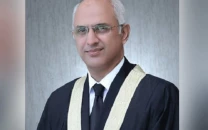Sindh CM threatens force to halt canal project
Murad Ali Shah says federal govt cannot function without PPP

Sindh Chief Minister Murad Ali Shah has strongly opposed the proposed Cholistan canal project, likening it to the controversial Kalabagh Dam and warning that the Pakistan Peoples Party (PPP) would use "force to stop the plan if necessary".
The Cholistan canal project is part of the Green Pakistan Initiative, which aims to irrigate 4.8 million acres of barren land through six canalstwo each in Sindh, Balochistan, and Punjab.
During an informal conversation with journalists in Karachi, the chief minister cautioned that water remains the country's most critical issue, adding that Sindh possessed complete records of water shortages in the Indus River System.
He accused the last caretaker government of conducting questionable studies on the Cholistan canal project. "Under caretaker governments, Wapda conducts often unreliable studies," he added.
Shah criticized Punjab's claims that 27 million acre-feet (MAF) of water reached the Indus Delta, arguing that the delta should be flourishing if such a volume were available.
He also raised concerns over the presentation of six canal projects before the Executive Committee of the National Economic Council (Ecnec), saying that Sindh would challenge them at the Council of Common Interests (CCI).
He further revealed that President Asif Ali Zardari was informed about plans to cultivate additional land, to which he responded that the project could proceed only if all provinces had no objections. However, Shah claimed that the meeting's minutes were inaccurately recorded. "A single meeting cannot authorize the construction of a canal," he asserted.
He alleged that the Indus River System Authority (Irsa) had provided inaccurate water certification, as there was "insufficient water available in the river".
Shah linked the Cholistan canal issue to the longstanding controversy over the Kalabagh Dam. He reminded that former premier Benazir Bhutto had led a successful campaign against the dam, and vowed to continue the same fight against unauthorised canal projects.
He reiterated that this issue is not just about Sindh, but about national unity among provinces.
The chief minister maintained that the Punjab government under the caretaker set up had allocated about 1.2 million acres of land for the Green Pakistan Initiative, adding that corporate farming was done through solar systems and tube wells in July and August.
He said the Sindh Assembly passed a resolution against the canals, adding that the matter was currently with Ecnec, where the provincial government would strongly oppose and condemn it as well.
"This matter is under our control, and we will not allow the canals to be built. The PPP is a powerful force, and we will use that strength when necessary. The federal government cannot function without the PPP."
Shah observed that Pakistan is facing acute water scarcity. He pointed out that from 1999 to 2024, the Tarbela Dam only reached full capacity for 17 days in 25 years, while the Mangla Dam filled for just four days.
"If we are unable to fill our dams, how will we be able to sustain the new canals proposed by the federal government?" he asked.
Shah noted that the estimated cost of this project was initially Rs218 billion, which has now likely increased to Rs225 billion, and upon further examination, the cost may rise even more.




















COMMENTS
Comments are moderated and generally will be posted if they are on-topic and not abusive.
For more information, please see our Comments FAQ